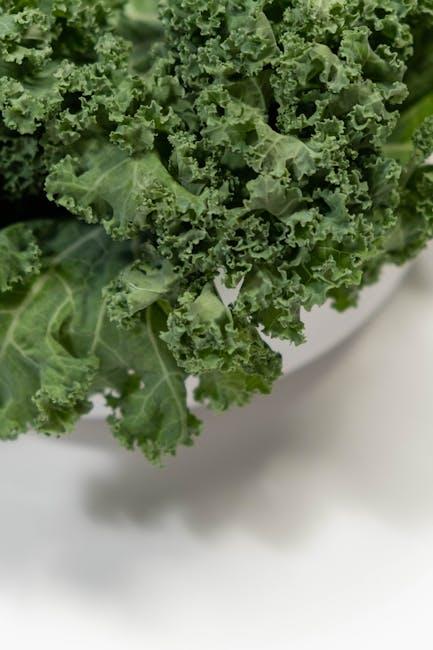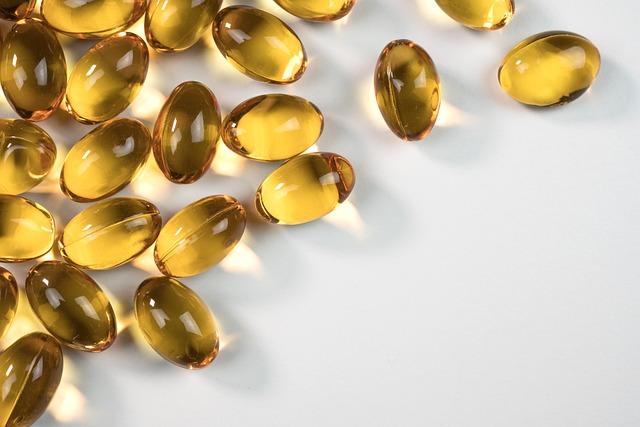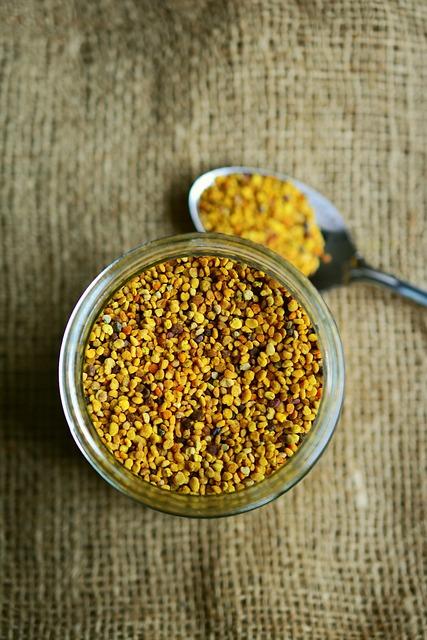In the intricate tapestry of nutrition, few threads are as vibrant adn vital as those woven with the B vitamin family. Among these, Vitamin B9 stands out, playing an essential role not just in cellular functions but also in the health of future generations. For women of childbearing age,understanding the nuances between folate and folic acid is crucial,as these two forms of this vital nutrient can considerably influence maternal and fetal wellbeing. While folate naturally graces the pages of leafy greens and legumes, folic acid—the synthetic counterpart—frequently enough headlines dietary supplements. As we explore the benefits and distinctions of these two forms of Vitamin B9, we will guide you through the best supplement options available, empowering you to make informed choices for yoru health and the health of your family. Join us on this journey to decode the essential roles of folate and folic acid, ensuring that every woman can nourish herself and her future with confidence and clarity.
Choosing Between Folate and Folic acid for Optimal Health Benefits
When considering supplementation for optimizing health, notably for women of childbearing age, the choice between folate and folic acid can significantly impact overall wellness. Folate, the naturally occurring form found in foods such as leafy greens, fruits, and legumes, tends to be more readily absorbed by the body. This is crucial for metabolic processes, including DNA synthesis and repair. In contrast, folic acid, the synthetic form, is commonly added to fortified foods and supplements. While it’s effectively converted into its active form by the body, some individuals may experience difficulties with this conversion, which may affect its efficacy. It’s essential to consider personal health conditions and dietary habits when making a choice.
To make informed decisions, understanding the differences in bioavailability and the potential health benefits and risks associated with each form is vital.Here’s a rapid comparison to keep in mind:
| Factor | Folate | Folic Acid |
|---|---|---|
| Source | Natural foods | Fortified foods/supplements |
| Absorption | better in many cases | Less effectively absorbed by some |
| Health risks | Minimal | Possible excess intake linked with health issues |
Ultimately, selecting the right form of vitamin B9 may also depend on unique factors such as lifestyle choices, existing health conditions, and dietary preferences. Experts suggest that consulting with a healthcare provider can be beneficial in determining which option might best support individual health goals.

Understanding the Importance of B9 for Women of Childbearing Age
Folate, the natural form of vitamin B9, plays a crucial role in various bodily functions, especially for women of childbearing age. It is essential for cell division and the formation of DNA, making it a significant nutrient during the reproductive years. Adequate intake of this vitamin not only supports regular ovulation but also contributes to a healthy pregnancy, mitigating risks such as neural tube defects in developing fetuses. The body’s increasing demand for B9 during this time emphasizes the necessity of incorporating folate-rich foods into daily diets, such as:
- Leafy greens (spinach, kale)
- Legumes (lentils, chickpeas)
- Fruits (oranges, avocados)
- Nuts and seeds (sunflower seeds, peanuts)
While folate from whole foods is beneficial, many women may require supplements for optimal intake. This is were *folic acid*, the synthetic form of B9, also comes into play. It is commonly found in fortified foods and supplements and serves as a reliable source to ensure that daily requirements are met. Understanding the distinction between folate and folic acid can definitely help women to make informed choices about their supplementation and dietary habits. To simplify your supplementation journey, consider this:
| Form | Source | Absorption |
|---|---|---|
| Folate | Natural foods | Efficient, but varies |
| Folic Acid | Fortified foods, supplements | More easily absorbed |

Top Supplement Brands for Folate and Folic Acid: A Comprehensive Review
When it comes to selecting the right supplement for folate and folic acid, several brands stand out due to their commitment to quality and efficacy. Among these, Garden of Life offers a whole food-based option that is particularly popular among women of childbearing age. Their Vitamin Code Raw Folic acid is derived from real fruits and vegetables, which can enhance absorption and offer additional nutrients. Another noteworthy brand is Thorne Research, known for its rigorous testing and high-quality standards. Their Folate supplement is especially praised for its bioavailability, making it a prime choice for those seeking to boost their folate levels safely and effectively.
Not to be overlooked, Nature Made provides a reliable folic Acid supplement that meets stringent quality assurance standards. Their products are often verified by the USP, ensuring you get the dosage you expect. Additionally, Solgar offers a vegetarian-pleasant option that is perfect for those on plant-based diets. Their Folate 400 mcg capsules come in an easy-to-swallow format, making it convenient for daily intake. Each of these brands combines quality ingredients with consumer trust, providing options that cater to diverse preferences and needs.

Incorporating B9 Into your Diet: Food Sources and Supplementation tips
Integrating B9 into your diet can be both simple and enjoyable,as various foods are rich in this vital nutrient. Leafy greens such as spinach, kale, and collard greens are some of the best sources of folate. Additionally, legumes like lentils, chickpeas, and black beans pack a powerful folate punch. citrus fruits, including oranges and grapefruits, not only add a refreshing flavor to your meals but also contribute to your daily folate intake.Other excellent options are avocados, asparagus, and fortified foods such as cereals and bread, which frequently enough contain added folic acid for improved nutritional value.
If dietary changes aren’t sufficient to meet your needs, consider supplementation. When choosing a B9 supplement, it’s essential to look for L-methylfolate, a more bioavailable form of folate that the body can utilize effectively. Always consult with a healthcare provider before starting any supplement to ensure it’s appropriate for your individual health circumstances. When selecting a supplement, here are a few tips:
| Supplement Type | Benefits | Recommended Dosage |
|---|---|---|
| L-methylfolate | Highly bioavailable; ideal for those with MTHFR mutations | 400-800 mcg daily |
| Folic Acid | Widely available; cost-effective | 400 mcg daily (up to 600 mcg during pregnancy) |
| Whole Food Supplements | Includes additional nutrients; close to natural food sources | Follow product-specific guidelines |
In Summary
As we navigate the intricate landscape of nutrition, understanding the differences between folate and folic acid becomes imperative for women of childbearing age. Each form of vitamin B9 carries its own unique benefits, playing a vital role in supporting reproductive health and the growth of a healthy pregnancy. With a wide array of supplements available, the choice can seem daunting. However, prioritizing whole food sources and seeking high-quality supplements tailored to individual needs can make all the difference.
whether you gravitate towards the natural abundance of folate or the synthesized brilliance of folic acid, the key lies in understanding what works best for your body.Empower yourself with knowledge, consult with healthcare professionals, and embrace the journey of motherhood with confidence and clarity. After all, investing in your health today is a stunning way to prepare for the future.
